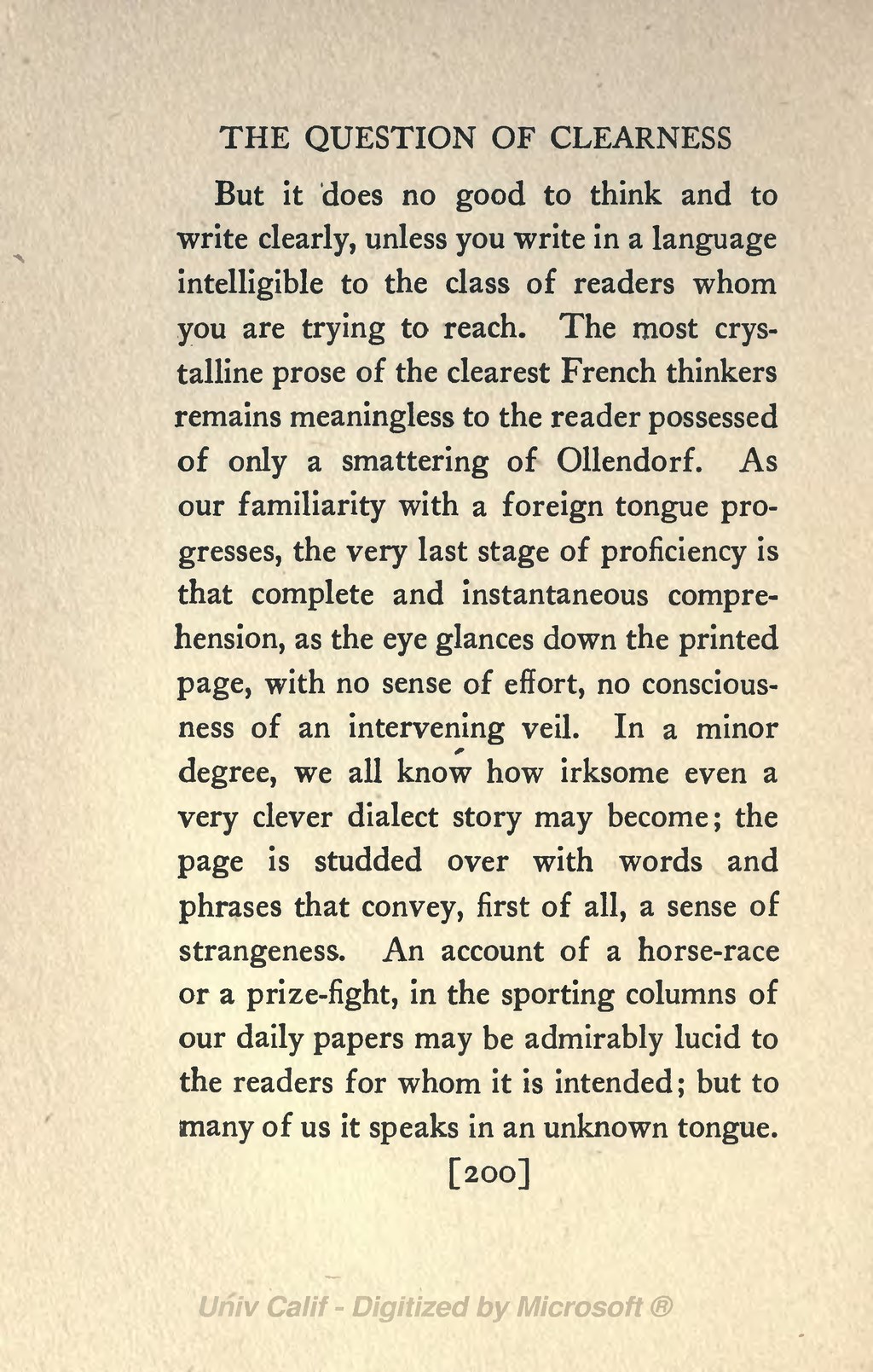THE QUESTION OF CLEARNESS
But it does no good to think and to write clearly, unless you write in a language intelligible to the class of readers whom you are trying to reach. The most crystalline prose of the clearest French thinkers remains meaningless to the reader possessed of only a smattering of Ollendorf. As our familiarity with a foreign tongue progresses, the very last stage of proficiency is that complete and instantaneous comprehension, as the eye glances down the printed page, with no sense of effort, no consciousness of an intervening veil. In a minor degree, we all know how irksome even a very clever dialect story may become; the page is studded over with words and phrases that convey, first of all, a sense of strangeness. An account of a horse-race or a prize-fight, in the sporting columns of our daily papers may be admirably lucid to the readers for whom it is intended; but to many of us it speaks in an unknown tongue.
[200]

